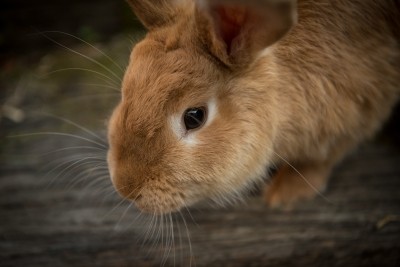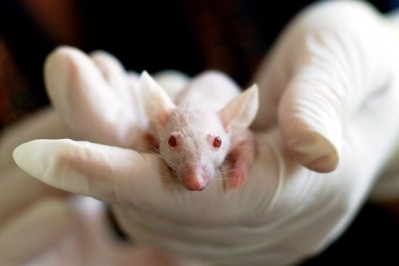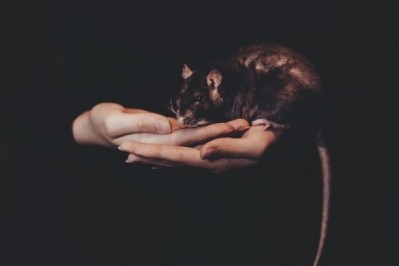PETA part II: Why China still has “much to do” in the fight for non-animal testing

China’s animal testing requirement
In 2015, PETA US research found that at least nine leading beauty players may be violating UK and European legislation by selling UK products and marketing them in China.
The regulatory body, China Food and Drug Administration, indicated that many cosmetics products that are available in the UK, are also registered in China.
Focusing on alternatives to animal testing, PETA continues to ensure China’s legal requirement for animal testing does not provide a loophole for multinational companies.
PETA has several core requests, primarily that these big beauty brands are not breaking the law by trusting and relying on data sought from animal testing.
“Cosmetics brands including Benefit, Bliss, and Caudalie have policies on their websites which state that they do not test on animals. Yet these companies and others that market their products in China know that animals will be killed for their eye shadow or shampoo,” said Dr. Julia Baines, Science Policy Adviser, PETA UK.
Claiming the accused companies are focusing on “an unacceptable double standard in the pursuit of profits”, Baines emphasises how PETA is “determined to do all we can to ensure that the government fulfils both the letter and the spirit of the law by never allowing the sale in the UK of cosmetics that have been tested on animals anywhere in the world”.
Necessary training needed
Arguing against the need for animal testing as a means to guarantee product safety, Baines stressed that “China continues to rely on them because its government’s scientists haven’t been trained in the use of better methods that are now standard in other countries”.
While PETA US has been funding a project by the Institute for In Vitro Sciences since 2012, to support scientists working with the Chinese government on this issue, China is still an area of concern for the organisation.
“They’re making good progress, and the first non-animal test was recently accepted in China. But there’s still much to do,” Baines emphasised.
Alternatives supporting quality
Companies can use a collection of ‘superior, human-relevant’ non-animal tests approved by the regulatory agencies that can equally determine the safety of products and ingredients.
To date, PETA UK has helped fund the validation of a skin allergy test for cosmetics, which can serve as a replacement to cosmetics testing using guinea pigs.
MatTek’s 3-D human skin model and the EpiDerm test are two other non-animal alternatives that have been approved for the cosmetics industry.
As brands look to maintain product quality and efficacy, non-animal testing alternatives provide companies with the opportunity to utilise existing ingredients that have been proved safe.
“Selling only products that are cruelty-free and safe for human use is an option for every business,” added Baines.





![Latest developments from the South Korean beauty market. [Getty Images]](/var/wrbm_gb_food_pharma/storage/images/_aliases/wrbm_tiny/publications/cosmetics/cosmeticsdesign-asia.com/headlines/brand-innovation/korea-focus-able-c-c-kolmar-and-more-in-this-k-beauty-round-up/17357973-1-eng-GB/Korea-focus-Able-C-C-Kolmar-and-more-in-this-K-beauty-round-up.jpg)

![Able C&C has furthered its partnership with Japanese discount chain Daiso with new makeup launch. [A'pieu]](/var/wrbm_gb_food_pharma/storage/images/_aliases/wrbm_tiny/publications/cosmetics/cosmeticsdesign-asia.com/headlines/brand-innovation/a-pieu-and-daiso-launch-exclusive-2-makeup-line/17339117-1-eng-GB/A-pieu-and-Daiso-launch-exclusive-2-makeup-line.jpg)
![Down Under Enterprises is setting sights on the Asian market as environmental sustainability and traceability become increasingly important. [Getty Images]](/var/wrbm_gb_food_pharma/storage/images/_aliases/wrbm_tiny/publications/cosmetics/cosmeticsdesign-asia.com/headlines/market-trends/down-under-enterprises-shifts-focus-to-china-as-environmental-sustainability-traceability-come-into-the-spotlight/17304932-1-eng-GB/Down-Under-Enterprises-shifts-focus-to-China-as-environmental-sustainability-traceability-come-into-the-spotlight.jpg)
![News updates from Shiseido, Dr.Ci:Labo, Sephora, and more. [Shiseido]](/var/wrbm_gb_food_pharma/storage/images/_aliases/wrbm_tiny/publications/cosmetics/cosmeticsdesign-asia.com/headlines/brand-innovation/updates-from-shiseido-dr.ci-labo-sephora-and-more/17334944-1-eng-GB/Updates-from-Shiseido-Dr.Ci-Labo-Sephora-and-more.jpg)

![Clariant has underscored the importance of localisation strategies and distribution capabilities in China with beauty trends evolving at a rapid pace. [Getty Images]](/var/wrbm_gb_food_pharma/storage/images/_aliases/wrbm_tiny/publications/cosmetics/cosmeticsdesign-asia.com/article/2024/04/16/clariant-emphasises-importance-of-localisation-in-the-era-of-viral-trends/17327969-1-eng-GB/Clariant-emphasises-importance-of-localisation-in-the-era-of-viral-trends.jpg)
